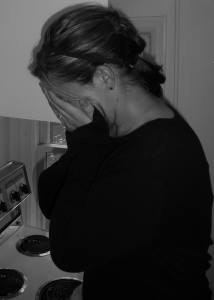As some of you may know, February is Heart Health Month. Your heart is a very important organ, and its health can be impacted by and impact many other organs. Rather than only including information on some heart healthy habits, I thought it might be interesting to provide some insight into the heart from a Traditional Asian Medicine perspective (please note that this perspective looks at more of a metaphorical heart and pathologies do not specifically correlate to physical heart issues, e.g. heart blood stagnation does not mean you literally have blood stuck in your heart). In Traditional Asian Medicine, the heart has a very important role in controlling personality, and joy. If there is an imbalance in this organ it can lead to excessive or deficient joy (mania, depression), anxiety, or insomnia. With this mental – emotional perspective in mind, it may give more fuel to the research findings below that connect depression with an increased risk of heart disease (this is of course in addition to much research between various other connections between depression and other factors which lead to heard disease). With that being said, below are some findings and habits that may help you to adopt a more heart healthy lifestyle:
- Exercise: Exercise helps keep your heart healthy on many different levels. Firstly, it improves your cholesterol levels by increasing good cholesterol and decreasing bad cholesterol. In addition, exercise can also help to decrease blood pressure. All of these parameters can contribute to heart disease if left unchecked. Exercise also combats depression, which can be a risk factor for heart disease. For more health benefits of exercise, consult my previous blog: https://www.plattsvilledoctor.ca/the-benefits-of-exercise/
- Avoid Smoking: Smoking has several negative impacts on the heart which include stiffening the arteries and causing plaque build-up in the arteries, which could lead to atherosclerosis. By avoiding smoking, one can significantly reduce their risk of heart disease.
- Laugh: Laughter can help improve heart health by decreasing blood pressure and helping to combat depression (as mentioned above, a risk factor for heart disease). Some find that laughing can help them to cope with stress as well. For more health benefits of laughter, consult my previous blog: https://www.plattsvilledoctor.ca/laugh-out-loud-health-benefits-of-laughing/
- Eat lots of fruits and veggies: Fruits and vegetables provide a hefty source of antioxidants, fiber, and nutrients, all of which can decrease one’s risk of heart disease and improve heart health overall. Many of the nutrients can also protect arteries and help the body become more resilient especially with stress. In addition, fruits and vegetables can help to decrease blood pressure and promote healthy cholesterol levels.
- Manage Stress: Stress can have a negative impact on the heart by increasing blood pressure, increasing blood sugar, increasing cholesterol, and increasing fat retention (which makes the heart have to work harder by having to pump blood further to more tissue). By managing stress more efficiently, one can decrease their risk of heart disease and improve heart health overall.
Have you benefitted from reading this blog? Know someone that would benefit as well? Share, Like, Comment, or Tweet this article, and let me know what you think.
Some of the information provided above may not be appropriate for everyone, please consult with your doctor before trying any of the above. If you are interested in Naturopathic Medicine and wanting a different approach to your health care needs, contact Dr. Elisha Cook ND by calling 519-537-7058 and book your appointment today!


